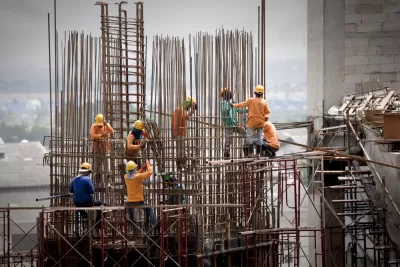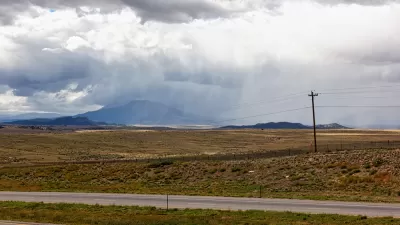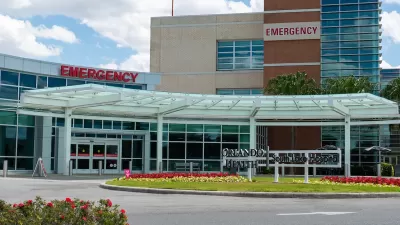A study from economist David Autor finds that the higher wages once offered workers without college degrees or special skills are mostly gone. Workers in cities often earn what they would in rural areas.

City boosters have long touted dense urban cities as places of opportunity. A new study finds that for low-skilled workers that may no longer be the case. An analysis of wages through time shows that, for less educated workers, the gap between pay in rural and urban areas has shrunk dramatically. "Because of this, cities no longer offer low-skilled workers the economic advantages they once did, according to new analysis by the M.I.T. economist David Autor," Emily Badger and Quoctrung Bui report for the New York Times.
Many policy makers and economists have mused that if Americans moved more they would be able to improve their incomes and have access to more opportunities. This study suggests that for many, that’s not the case, in part because of the decrease in manufacturing, the urban wage advantage is now only available for the professional class of Americans.
"Now, the urban jobs available to people with no college education — as servers, cleaners, security guards, home health aides — are basically the same kind as those available in smaller towns and rural communities," Badger and Bui write. Meanwhile, the cost of living in these denser communities are often much more expensive.
FULL STORY: What if Cities Are No Longer the Land of Opportunity for Low-Skilled Workers?

Planetizen Federal Action Tracker
A weekly monitor of how Trump’s orders and actions are impacting planners and planning in America.

Restaurant Patios Were a Pandemic Win — Why Were They so Hard to Keep?
Social distancing requirements and changes in travel patterns prompted cities to pilot new uses for street and sidewalk space. Then it got complicated.

Map: Where Senate Republicans Want to Sell Your Public Lands
For public land advocates, the Senate Republicans’ proposal to sell millions of acres of public land in the West is “the biggest fight of their careers.”

Maui's Vacation Rental Debate Turns Ugly
Verbal attacks, misinformation campaigns and fistfights plague a high-stakes debate to convert thousands of vacation rentals into long-term housing.

San Francisco Suspends Traffic Calming Amidst Record Deaths
Citing “a challenging fiscal landscape,” the city will cease the program on the heels of 42 traffic deaths, including 24 pedestrians.

California Homeless Arrests, Citations Spike After Ruling
An investigation reveals that anti-homeless actions increased up to 500% after Grants Pass v. Johnson — even in cities claiming no policy change.
Urban Design for Planners 1: Software Tools
This six-course series explores essential urban design concepts using open source software and equips planners with the tools they need to participate fully in the urban design process.
Planning for Universal Design
Learn the tools for implementing Universal Design in planning regulations.
Heyer Gruel & Associates PA
JM Goldson LLC
Custer County Colorado
City of Camden Redevelopment Agency
City of Astoria
Transportation Research & Education Center (TREC) at Portland State University
Camden Redevelopment Agency
City of Claremont
Municipality of Princeton (NJ)




























